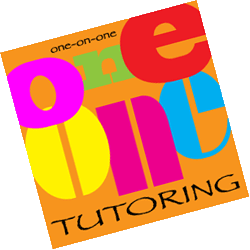

|
 |
|||
 |
|
|
||||||||||||||||||||||||
| Home Our Tutors Our Tutoring Services Intensive Seminars College Prep Timeline REGISTER Reading Programs Location and Hours Contact Us Policies |
|
9th GRADE October Some schools give the PSAT (practice SAT) and/or PLAN (practice ACT) to students in ninth grade. There is no preparation (other than consistently doing schoolwork) necessary for these tests. May and June Possibly take SAT Subject Tests (for students in grades 9-12 at the end of a history or science course), required by many competitive colleges. Summer Before 10th Grade Have enriching camp, travel, or community service experiences…read…keep a journal of summer experiences (this can come in handy when planning college application essays two summers later)…learn some new vocabulary words…close any academic gaps. 10th GRADE October Most schools give the PSAT (practice SAT) and/or PLAN (practice ACT) to students in tenth grade. There is no preparation (other than consistently doing schoolwork) necessary for these tests. December/January PSAT and PLAN scores are reported to schools, which give each student his/her score reports. May and June Possibly take SAT Subject Tests (for students in grades 9-12 at the end of a history or science course), required by many competitive colleges. Same dates as SAT. Summer Before 11th Grade More enriching experiences…reading…keeping a summer experiences journal…closing academic gaps. Begin SAT and/or ACT prep.
11th GRADE Fall Semester
PSAT (used as both practice for the SAT and as the National Merit Scholar Qualifying Test). December PSAT scores are reported to schools, which give each student his/her score reports. A score in the 99th percentile makes students eligible for National Merit Scholar finalist, semifinalist, or commended status. (See http://www.nationalmerit.org/student_guide.pdf for more information.) Juniors may take the ACT and/or SAT. Some college counselors recommend this because it gives kids a clear baseline score and a lot of time to prepare in depth for the spring tests. Others believe that since there are many seniors taking this test, it may not be the best time for juniors because they will be scored against students who are a full year older than they are. Spring Semester Students should take the SAT and/or ACT (most opt for once or twice during this semester).
Possibly take SAT Subject Tests (for students in grades 9-12 at the end of a history or science course), required by many competitive colleges. Same dates as SAT. Summer Before 12th Grade Students are strongly urged to write a college application essay during the summer before their senior year. The college essay is a critical part of the application process: it’s an opportunity for the university to get to know your child personally as well as intellectually, a way for your child to differentiate him/herself from other applicants. If possible, students should use the valuable time afforded by the summer to complete an essay (or, if summer is impossible, they should plan to get started as soon as fall semester begins). Planning in advance ensures that each student produces a thoughtful piece that accurately reflects his or her character, beliefs, interests, and abilities. We generally suggest that students work on one essay that will become the central narrative work of their many applications. A good piece can be modified here and there to fit more specific essay questions, if necessary; students seldom need to write more than one central essay if they write a strong, finely tuned piece. (Many competitive colleges ask for one or several additional, brief essays specific to the individual school.) Every summer and fall we offer tutoring to help students craft vivid, thoughtful, finely wrought portraits that reveal their unique qualities and insights. Some things to know about the college essay process:
PERSONAL STATEMENT
12th GRADE September/October
November/December
|